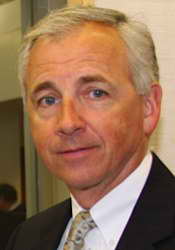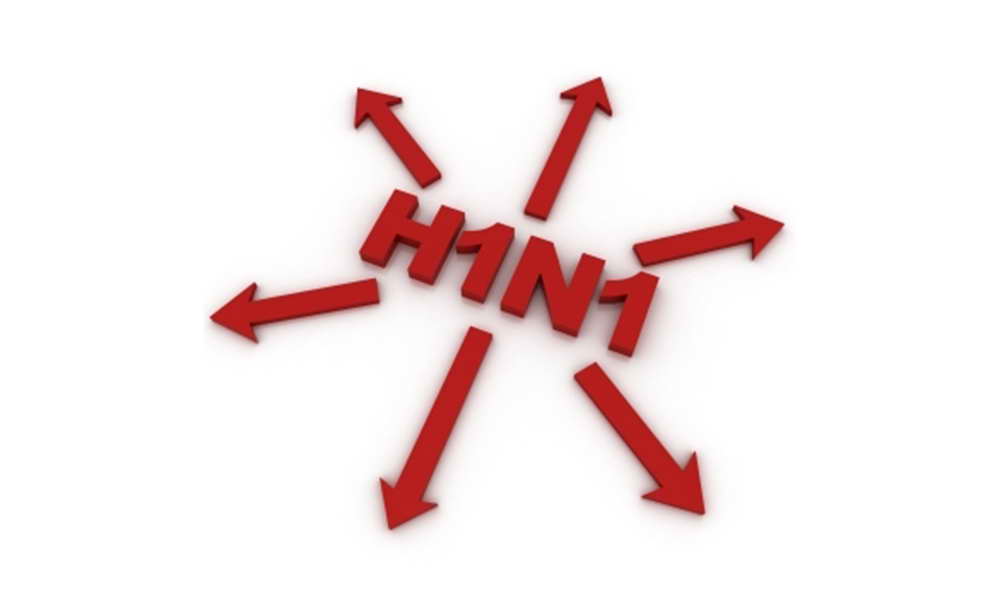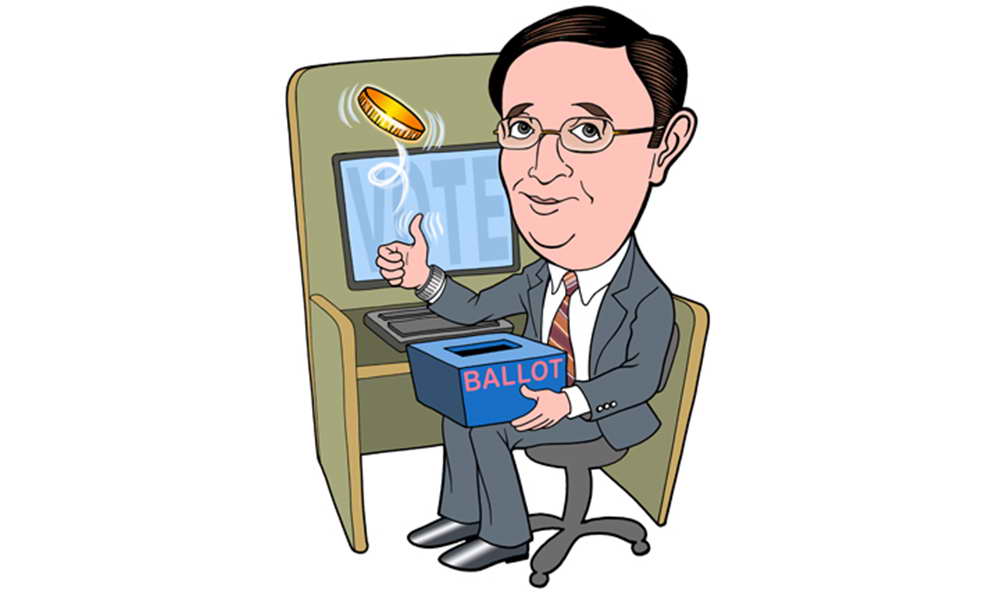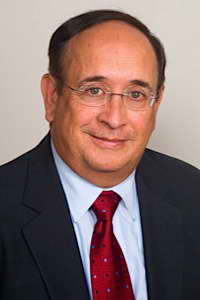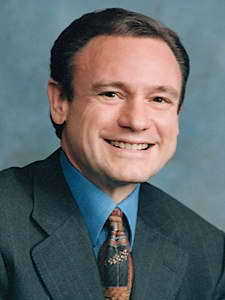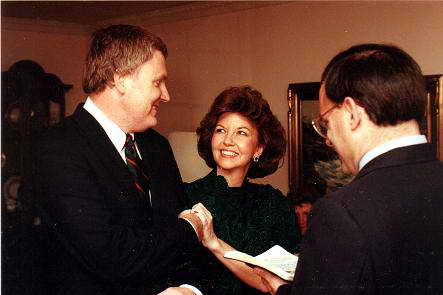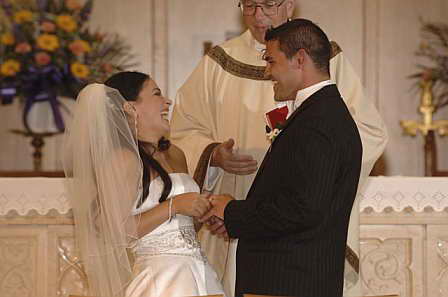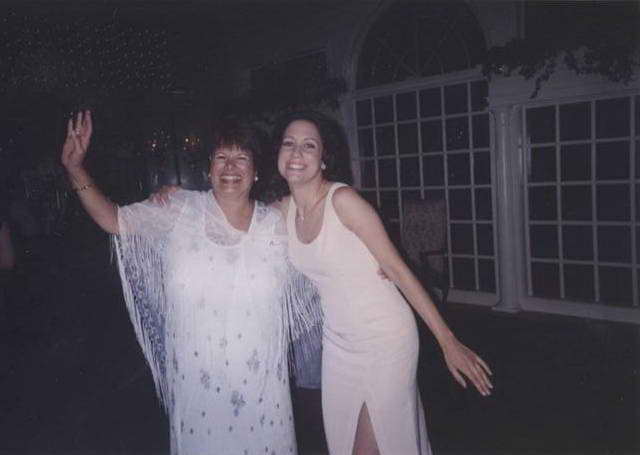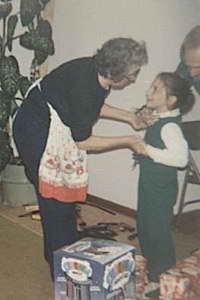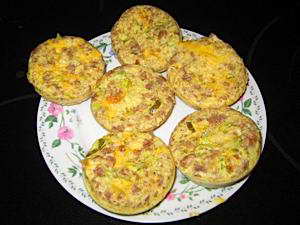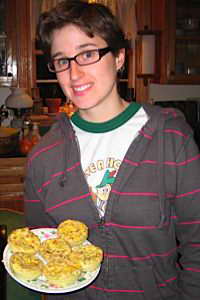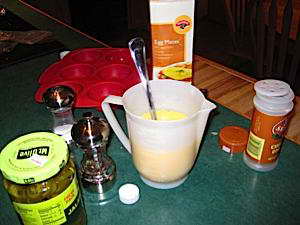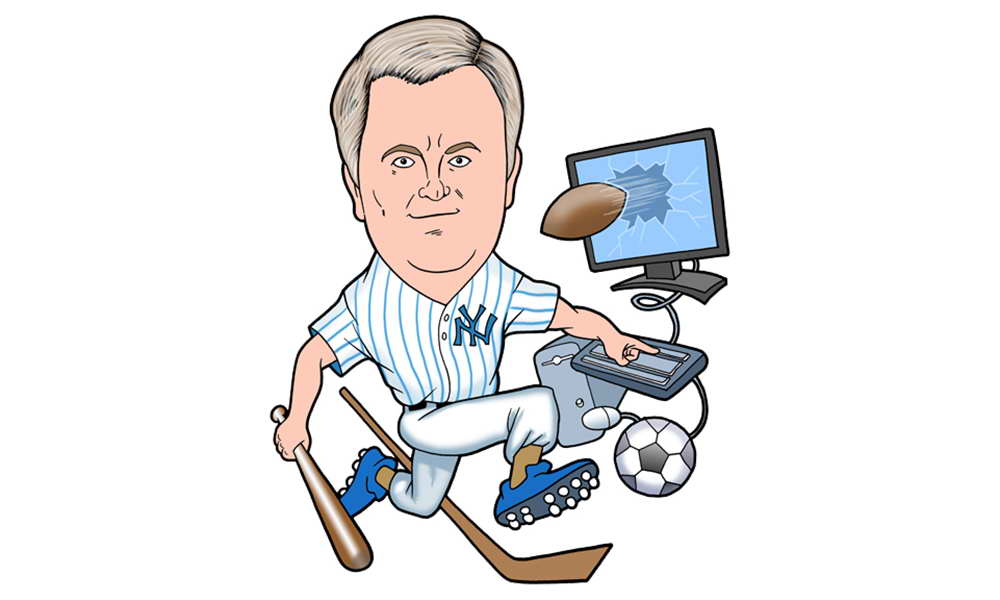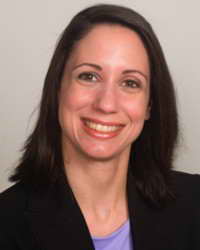By John Sparks
Kids…when it comes to parenting, even the littlest angels can be devils. In her new book, 13 is the New 18, author and Associated Press columnist and editor, Beth Harpaz, shares her experiences raising a trying teenager. When Harpaz spoke with The Marist Poll’s John Sparks, she offered her insights, advice, and reassurance to parents that there is a light at the end of the tunnel. The transcript to the interview is below.

John Sparks
Beth, the Marist Poll conducted a national survey and asked folks which stage they thought was the most difficult to raise a child. Not surprisingly, two-thirds responded that teens from 13 to 19 were the most challenging. Now, regardless of the region of the country, the income, the education, the race, age, gender, the respondents overwhelmingly agreed. Now does this surprise you?
Beth Harpaz
Not at all. It doesn’t surprise me at all. I mean, I think when they’re little, in some ways you’re more prepared emotionally for how hard it is physically. You’re up in the middle of the night. You’re changing diapers. You’re dealing with tantrums. They’re starting in school. But, I think there’s a lot more support for parents at the stage. If you’re a mom or even a dad, you’re going to the playground, and you’re commiserating with the other parents, and you’re trading advice on: oh, I have a colicky baby. Well, nobody blames you if you have a colicky baby. They might offer advice, but they’re not going to judge you for it. But, if you have a teenager who is yelling at you on the street or in a mall or failed a class and has to go to summer school or gets in trouble or talks back to grandma, people do judge you as the parent, and that’s very difficult. You don’t get that kind of support. People are very secretive about their problems they have with teenagers. They’re afraid to tell the other moms, “Oh gosh, I don’t know what to do with this kid. He’s driving me nuts.” So, I think part of it is the isolation that we have to deal with these problems by ourselves.
John Sparks
Well, an even greater percentage of the respondents said that it’s harder to raise a child now than in previous generations. Why do you think this is so?
Beth Harpaz
Well, you know it’s interesting. I mean people who have teenagers now, they’re probably, what, in their late 30s/40s/early 50s, majority of them I would guess, and so, a lot of these folks grew up in the ’60s and ’70s, and I think maybe a lot of us, myself included, I’m 48, born in ’61, so, I was little girl in the ’60s and a teenager and college student in the ’70s, I think we thought that we were the worst teenagers, you know that we were out there doing everything, that we know all about sex, drugs, and rock and roll, so there’s nothing a kid could throw at us that would freak us out. Well, guess what? You know, they always manage to find something. I mean now as parents we have a different kind of generation gap with our kids. They’re so into the technology, and they know so much more about it than we do. They can outsmart us every time, and they’re constantly coming up with something new — the texting; the IM’ing; the websites, the Facebook, the MySpace; the cells phones; the laptop. I mean you can’t even get a kid’s attention because they’re plugged into so many things. They’ve got things in their ears and their fingers are attached to something else, and they’re looking at the screen, and the phone is beeping and texting and all this stuff. You can’t even have a conversation with them they’re so plugged into stuff. So, I think at least for me, I have a 16-year-old and an 11-year-old, and I honestly thought it would be easier because I thought well, I know everything about being a teenager. There’s no generation gap now, and then all of sudden there was one. So, part of it was the surprise.
John Sparks
Beth, it’s really interesting. My kids are grown. They’re in the 30’s, and the thing that struck me in reading that book was the difference that technology has created. When my kids were in their teens, there were no cell phones. It’s almost like you want to have that connection with them so that you know that they’re okay, and yet the technology that enables you to keep them under surveillance, if you will, is the same technology that enables them to go off in different directions and disconnect with you as a parent.
Beth Harpaz
That’s right, and of course, there’s a lot of fear. Parents have a lot of fear of what’s out there on the Internet. I mean, I try not to be a fear monger. I try not to get hysterical about child predators on MySpace. Oh my God. But, it’s actually a symbol of an issue that’s been true of raising teenagers since time began, which is an issue of trust and separation, where you don’t know who they’re communicating with on their — in their text messages and on the Internet and by cell phone, and so, it’s a scary thing as a parent because it’s another thing that you don’t have control over. There are real dangers involved, and you don’t want to be hysterical about it. On the other hand, you want to be realistic and proactive. So, it’s a tricky thing. The other thing…The book that I wrote is called 13 Is The New 18 and people say to me, “What does that mean?” When I was 13-years-old, it was a very gradual transition between childhood and being a teenager. Adolescence was a long period of time where kids were funny looking, and they still played with toys. When I was 12-years-old, I had braids, and I played with Barbies, and let me tell you that 12-year-old girls do not play with Barbies anymore. 12-year-old girls look like movie stars now. They have beautiful teeth and beautiful hair and beautiful skin, and there’s no more pimples, and there’s no more dandruff, and there’s none of that stuff. Their braces…they start wearing braces when they’re 9-years-old. By the time they’re 14, they’re ready for their screen debut, so that transition that maybe in past generations gave parents a little bit of time to get used to this idea of a kid grown up, that transition is gone. Overnight now 13-years-old, they are the way we were when we were 16/17. The middle schoolers are behaving now like high schoolers used to, so that’s another issue for this generation I think.
John Sparks
Precisely. I was going to again attribute that to media. The media’s so pervasive. For instance, I love baseball. I watch baseball, but I’m watching the game on television and all of sudden in between innings is an ad on erectile dysfunction. So, are today’s children deprived of their childhood, and how can a parent combat this or deal with this? I mean you mentioned about the Barbie dolls and the girls and what girls are doing now at 12 is so different, and I get back to some of the things that they’re exposed to.
Beth Harpaz
Yeah, I couldn’t agree with you more, and I hate to sound like an old fogey, but we watch…We’re Yankee fans, and I got an 11-year-old who loves baseball, and it is hard to sit through those commercials with an 11-year-old, let me tell you. I agree with you, it’s — they are exposed to a lot more sort of sophisticated themes and older themes, and I think it’s especially hard for parents of girls. I have two boys, so I think it’s not quite as hard for us, not that obviously a parent of any teenager being a responsible parent is talking about sexuality and what your values are as a parent and what the rules are from your point of view, whatever those might be. But, especially the second time around, since I do have an 11-year-old, I am so committed to letting him be a little boy. I think with my older son, I wasn’t quite ready for that transition to go so fast, and I feel so strongly that as parents, we have to save childhood. We have to somehow find ways to preserve that sense of wonder. It’s really hard because they are bombarded with so many messages that tell them they have to grow up. They have to see R-rated movies. They have to play violent video games. It’s really, really hard, but there are ways. I’m lucky my little boy loves sports, and I think that sports is a terrific, terrific way to keep kids young because you know why? Because instead of it being all about me, I’m so fabulous, look at me, they are part of a team and they’re part of something that’s bigger than they are, and I think that’s part of how you help them preserve that sense of childhood wonders so that they don’t get all teenagery and I know everything and it’s all about me. I think there are other ways to do it, but I think that sports is a good way… If you’re of a mind to belong to a house of worship or any kind of a community organization, I think anything where we can de-emphasize the self and the selfishness and the I, that sort of self-obsession that teenagers have and connect kids to their family, to their neighborhood, to some organization, to something that’s bigger than they are, and that might even be as simple as you go outside on a starry night and try to find Orion’s Belt or the Big Dipper or something like that, just something so that they get out of that obsession, which I think is very much driven by the media and the celebrity culture that we’re in.
Another issue I think for a lot of kids now is this emphasis on brand names. I mean, you don’t get quite as much when you have boys; but even boys, they want those Jordan sneakers, and Jordan sneakers cost a hundred bucks. When they’re little, you can buy them sneakers at Payless for 10 bucks, and they’re happy. Then all of sudden, they’re 13-years-old, and that’s not going to do. They want $100 sneakers. So as parents, we have to again communicate our values. In my case, I said, “Okay, here’s my budget for sneakers. I’m willing to pay $50 a year for sneakers. If you need more than that, buddy, go get a job.” You know what, they got jobs. Teenagers are very resourceful. If you tell them that you’re only willing to pay so much for something, they will find ways. They will mow lawns, walk dogs, save up their allowance, babysit. So, that’s another thing that we can do as parents is just be clear about what our values are and just draw those lines and say, “If you need to do it another way, then here’s the situation from my point of view.”
John Sparks
Beth, one thing that hit me in the face when I read the book were cultural differences. You grew up in the Northeast. You raise kids in a Brooklyn apartment. Parents in other parts of the country, they live in houses with yards. They don’t depend on the subways or trains for transportation, and yet raising teens is a challenge despite those differences isn’t it?
Beth Harpaz
Well, I’m very struck by the results of your poll that this is a commonality among parents regardless of where they live, how much money they make, what their ethnicity is. I mean I just — I think that says something about just the basic nature of the relationship between parents and teenagers that it doesn’t matter whether your kids taken the subway or having their first driver’s license experience driving a car. As I said before, I think a lot of these issues revolve around separation. And, so in New York City, our kids don’t drive. They do take the train and the bus independently as teenagers, but I think that there’s probably something that I have in common putting my son on the subway by himself for the first time with the mom or dad who is giving the keys to the car to their kid for the first time. I mean obviously it’s a little more dangerous if you’re going to get in a car accident than if you get lost on the subway, but I think emotionally that it’s a similar moment of letting them go. One of the other big differences, which ultimately may not be all that different, is in an apartment, there’s not a lot of private spaces, so we don’t have the rec room, the basement, the place where kids can go and be alone doing their things with their friends. So, my son as a teenager is not home a lot because there’s no space there for him to hang out with his friends, and unfortunately they — a lot of times, they’ll go hang out in the park, which isn’t great because there’s no adult supervision whatsoever, or they’ll go to somebody’s house where parents aren’t home. I mean I’m not naïve. I know these things go on so. But, again, it’s one of those separation issues where they want their space. They want to be private. They’ll find it one way or the other. I guess in the suburbs or in the country, it’s a little bit different because maybe parents are able to provide a space and then maybe another layer of supervision. Sometimes, I do wish I had that suburban basement, believe me.
John Sparks
When I was a kid in Texas, this would’ve been the 1950s, I would be away from home all day. Now my parents would not know where I was. I was usually at the park playing baseball without parental supervision. I even took a city bus to downtown Fort Worth, Texas, when I was five-years-old all by myself.
Beth Harpaz
Wow.
John Sparks
And they knew, or at least I felt they knew, that I was safe. But it’s a different world today, isn’t it?
Beth Harpaz
Yeah. Well, it’s interesting, I think that we are starting to see the end of the helicopter parent. I don’t know if you’re familiar with that term or if your listeners are, but that is a term for the parent who is very anxious and always hovering over the child and not letting the child be independent. I’m not really sure what created that term. I myself was not so much like that. There’s actually another great new book out called Free-Range Kids, like if you heard the term free-range chicken for chickens that are allowed to run around the barnyard, Free-Range Kids. The author is Lenore Skenazy, and she sort of espouses that philosophy that our kids would be better off we backed off a little bit and let them make some of their own mistakes and gave them a little more freedom. I’m not sure that the world is any more dangerous now than it ever was. In fact, crime statistics would suggest, in fact, that it’s safer now than when we were growing up in the ’60s and ’70s. So, personally, as a parent, I think there’s a lot to be gained from independence, and I’ve tried to create situations where my kids could figure out the world on their own whether it was walking to school by themselves starting in the third grade or taking the train and subway when they’re 12-13, budgeting their own money, being responsible for some of their own expenses. I think that’s how you create independent adults, and I think if we don’t do that, we’re going to have a lot of 25-year-olds who are doing way too much dependence on their parents.
John Sparks
Beth, I want to talk a little bit more about the book, 13 Is The New 18. Now, you wrote primarily about your experiences with your son, Taz, at the age of 13.
Beth Harpaz
Uh-huh.
John Sparks
Now I’m just curious what do you think the book would’ve been like if Taz had written a book about you.
Beth Harpaz
Well, that’s a good question. I bet it would’ve been a different book if he’d written when he was 13 than when he was 16. I’m happy to say that although I had a very rocky period when he was 13, as a 16-year-old, he is a really nice young man, and we have a very good relationship now. When he was 13, it was very, very difficult. We were constantly battling. There just were constant tensions. It was a constant push and pull where he was very combative and very — the psychologist used the word oppositional. He was very oppositional. If I said red, he said blue. If I had a rule, he had to break it. He was just constantly getting in trouble at school. It was just everybody who was an adult didn’t know anything, and everyone who was a kid was — had a lot of wisdom and that was who he was going to listen to, not his parents. I already see that he’s already sort of a little bit nostalgic. He has a little brother, who’s 11, so he can act the big brother and say, “Well you know, it’s good that when we were little, mom did this.” Well, at the time when I said, “No, you can’t have ice cream for dinner or whatever it was, you didn’t like it. But, now that you’re 16, you think it was a good idea, well okay.” It’s funny because he’s a very resourceful kid. He has a lot of jobs. He works at an after-school center and as a camp counselor, and he babysits a lot, and he’s very, very good at that, and it’s interesting because he’s tough. He doesn’t let little kids push him around. When he says, “This is the rule,” that is the rule. It’s interesting because when he was on the receiving end of rules, he didn’t like them very much. He thought we were very mean. Of course, the other thing is even in the last five years, technology has changed a lot. So his little brother, for example, uses a laptop and has a cell phone because I want to be able to hear from him after school, make sure he’s okay, and of course my older son didn’t have those things when he was 11. So, he’s constantly saying, “It’s not fair. He’s only 11, and he gets to have a cell phone and be on a laptop, and you didn’t let me do that when I was 11.” Well, it was all so new when he was 11 that most 11-year-olds weren’t doing it. So, it’s interesting that even from his point of view, there’s been this sort of increase in technology. But, from his point of view, we were just really mean when he was younger, and we didn’t let him have those things, but they were very expensive when all this technology was new, and nobody really knew a lot about it. It wasn’t like every kid had a cell phone when he was in fourth grade. None of them did, but now most of them do, at least in New York City because they are kind of independent after school, so moms and dads want to hear from their kids, make sure they’re okay in the afternoon. Where are you? What are you doing, et cetera?
John Sparks
Beth, you also have a partner in parenting that — with Elon.
Beth Harpaz
That’s right, my husband Elon.
John Sparks
There are many kids today that don’t have the benefit of two parents,, and I’m just curious what the book would’ve been like if Elon had written it.
Beth Harpaz
Well, I guess a couple things. One is there are more single parents than ever. The statistics show us that. Obviously a single parent can do an incredibly brilliant job of raising kids. Just look at our President. I mean just because you are raising a kid on your own, it doesn’t mean that your kid is going to be handicapped in some way. I think it’s important to try to find other people both to help you and to give a kid various kinds of role models. I mean don’t forget, President Obama had a grandpa and a grandma, and other people in his life who cared about him. So, try to make sure if you’re a single parent that your child is involved in activities, sports, where there’s maybe a coach or maybe drama, a play at school or something like that where they can have a relationship with other adults, take a little bit of pressure off you, but also give them some alternate role models. I think that’s really important. But my husband is a wonderful guy. He’s absolutely brilliant. He went to Yale. He was number two in his law school class. He has a mind like a steel trap. He could beat anybody at Scrabble. He’s really good at things like that and so he’s just…And, he was a really nerdy kid, never kissed a girl, never smoked a joint, never went to a concert. He was really straight as an arrow Boy Scout kind of a kid. In fact, he was in the Boy Scouts. We have the medals to prove it. So, for him to have a kid who’s a teenager who’s a more typical teenager who breaks rules and sometimes gets in trouble and pushes all the buttons, he was completely freaked out by this kid, and I felt that I was often running interference between Elon’s ideal of a brilliant child who’s going to get straight A’s and be perfect and this and that and the other and Taz who was just kind of the teenager who drives you insane. So…Also, my husband’s father was an immigrant actually, so I think also in immigrant families, there’s a lot of pressure on kids to really be perfect, to be the perfect American child, and this is why we came to this country. I think there’s…And, I think often kids rise to that challenge. It’s a pressure for them, but often you find in immigrant families that children do try to be more helpful, and that there is that sense that they’re not entitled to something, this is a privilege to be here and you better do it right. So, that’s definitely been a challenge in our child rearing, but it’s also in some ways, it makes it easier because I can always say to the kids, “Please don’t let daddy down. You cannot get a ‘C’ in that class, because daddy will just be devastated.”
John Sparks
I’m curious, did Taz ever try to triangulate and play you off of Elon?
Beth Harpaz
There are some kids who will do that, not so much. I think as parents, we can probably put an end to that. I think with us, with my husband and I, we often will decide what is important to us and then let the other person make the decision if it doesn’t matter to — if it doesn’t matter. If something just doesn’t matter to me but I think it’s going to matter to Elon, then I’ll just often defer to him, and I’ll just say, “You know what. I just really don’t have an opinion on that. It’s up to daddy to make the decision.” I’m not being a coward about it, but I know that he might care more about something like, oh I don’t know, something having to do with school perhaps or… we’re in the college application process now, so there’s a lot of coordination in that regard. My husband also is very into sports, so my younger son’s a jock, and sometimes we have sports conflicts. Okay, he’s got a big test tomorrow, and he’s got a basketball tournament tonight. What are we going to do here? I sometimes let him make the call on that because in a marriage, you have to figure out what’s the way that will cause the least conflict among all the parties, that’s the way I see it.
John Sparks
In your book, you talk about how kids at the age of 13, Taz is embarrassed to be seen with his parents.
Beth Harpaz
Oh yeah.
John Sparks
Has Taz ever read your book?
Beth Harpaz
Taz has not read my book. Interesting question. I asked him… I’ve asked him about this a couple times. I checked with him all along in the process. When I had the idea for the book, I got his permission. At various moments, I gave him an opportunity to read the proposal, the manuscript, the finished product before I sent it in, and he said that he trusted me not to embarrass him too much, which is a good thing. I also used… The first thing I did when I got my check for the book was I went out and bought him and his brother a Wii, so that made me a cool mom. Yes, bribery, it works. You can buy a child’s love. I’m not saying it’s the right the thing to do. I’m just saying it works. I also…I gave him Taz as a nickname. It’s not his real name, so I created just one little bit of a layer of privacy for him. I figure, hey, if a college counselor happens to have that book on his desk, and Taz’s application is there in the pile, they might not necessarily make that connection right away because the name Taz is not going to be in the application material. So, he’s certainly been supportive. I had a big reading in our neighborhood at the local bookstore, and he came with a couple of friends, which I thought was really nice. So, he’s cool with it, and that’s what matters. Obviously, it’s not good to embarrass your child in public, so you want to… If you’re going to,do something like this, we’ve got a lot of mommy bloggers out there, and if you’re going to do something like this, you want to make sure your kids aren’t going to hold it against you.
John Sparks
So, Taz is a nickname that you call him by or is this one that you came up with for the book?
Beth Harpaz
I came up with it for the book.
John Sparks
Okay.
Beth Harpaz
But, it does have a little bit of resonance. The Tasmanian Devil is a very popular Looney Tunes’ character, and for kids nowadays, I guess maybe 10-years-ago, Taz was really a big sort of icon. Everybody had a Taz hat or a Taz shirt or a Taz sticker or something like that; and the character Taz, the cartoon character himself, he’s kind of like a teenager. He’s kind of this like sloppy lazy crazy kind of a guy, so it was a good fitting name. I also… I could sort of see that as a graffiti tag– Taz. I could see those letters spray painted on some building somewhere in my mind’s eyes. It seemed like kind of a cool combination of letters.
John Sparks
Now, why did you write the book? Was it to entertain? Was it to give parents’ tips on parenting based on your successes, your perceived failures?
Beth Harpaz
The main reason I wrote the book I think was because I was just so shocked at how secretive everybody was once my friends and the people that I had been raising my son with, our community of parents, once their kids got to be adolescents… Like I said before, when they’re little and they have colic or you’re toilet training them or we’ve got kindergarten anxiety or something like that, everybody’s happy to talk about it, honestly, and offer tips and support and oh, I went through the same thing, and here’s what worked for me, or that sort of thing. Nobody was embarrassed. But, all of sudden when they get to middle school, nobody wants to admit that their kid isn’t perfect. Nobody wants to have a conversation about well I’m worried. I think they might be smoking cigarettes after school. What do you think? Oh, my kid would never do that. That’s not really helpful, and I actually don’t really believe it’s true. I mean we know from surveys that the federal government does, the CDC does a biannual survey of teenage behavior that most teens do experiment with cigarettes. They experiment with alcohol. They experiment with marijuana. I mean, I’m not the only one who’s walked this path, but parents are afraid to talk about these things. And I thought well, if I wrote a book about it, and I was honest, and I tried to be as honest as I could, maybe somewhere some mother who’s up in the middle of the night tearing her hair out will read this book and say, “Okay, I’m not the only one. I’m not going crazy. It’s not my fault. This is part of the normal sequence of events in raising a teenager,” and that was honestly what I hoped to do. I’ve gotten… believe me, I’ve gotten lots and lots of e-mails and letters from people saying things like: have you been spying on my house because I’m going exact — I’m going through exactly what you went through with Taz, and it’s so good to know that I’m not the only one, and that they go through this and then they come out on the other end. Hopefully, fingers crossed, they come out and they’re human beings again.
John Sparks
Beth, you’re quite versatile with the subjects that you tackle. You’ve been a political writer. You wrote about covering Hillary during the Senate campaign. I believe you also wrote another book about your mother’s three sisters, the book on raising Taz, you’re a travel editor, you write a parenting column, anything else on the horizon that’s in the works?
Beth Harpaz
I think my next book is going to be called 25 Is The New 11. I’m just having some problems with people who should be grown up and they just are acting like they — like they’re not. So just hold your breath on that one. If you’ve got any thoughts, let me know.
John Sparks
I used to think that each stage has its trials and it has its treasures and that when I look back, I like to remember the treasures and hope I’ve grown from the trials.
Beth Harpaz
Very good advice.
John Sparks
At any rate, anything else you’d like to add? You told me of course that Taz is 16, you’re in a new stage there…that Sport, and I assume that’s another nickname, is, I believe, 11.
Beth Harpaz
Yep, that’s my little jock.
John Sparks
So…
Beth Harpaz
Yeah, I think ultimately my message is: Hang on, moms and dads. If you’re raising teenagers, hang on. Like I said before, figure out what your values are, communicate those values, draw your line, try not to get drawn into the screaming battles and hopefully you’ll come out on the other end. When they’re 15-16-17, hopefully you’ll come out with a kid who’s a human being who loves and respects you and whom you can be proud of.
John Sparks
Well, I know you’re proud of your kids and you should be proud of your book.
Beth Harpaz
Thank you.
John Sparks
I think you’ve done a service and in a humorous way, and good luck to you in all your future endeavors.
Beth Harpaz
Thank you so much. It was great talking to you.
** The views and opinions expressed in this and other interviews found on this site are expressly those of the speakers or authors and do not necessarily reflect the views of The Marist Poll.
Related Stories:
6/25: Kids Today More Difficult to Raise…Teens Most Troublesome



